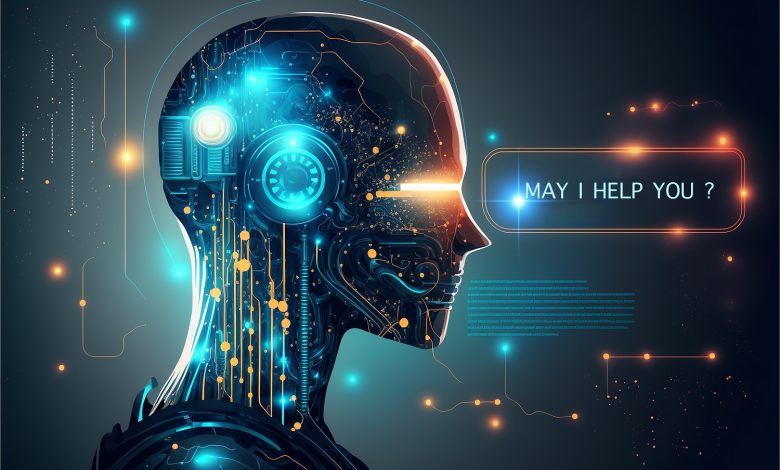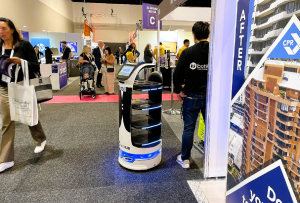
Exclusive: AI is the new technology frontier for the hotel industry
Op-Ed: Inspired by panel discussions about AI at this year's NoVacancy Hotel + Accommodation Industry Expo, Ross Beardsell considers its potential use in the industry
Is AI about to change the industry overnight? Possibly not, but JLL Hotels and Hospitality’s Ross Beardsell advises that missing the AI boat would not be very intelligent.
The hotel industry is always exploring technology solutions but has generally been slow to adopt the technologies into their operations. There will always be a conflict between our industry’s renown as a ‘people business’ and the need for automation to increase efficiencies and reduce costs.
That conflict was best seen in the disparity of opinions between those hoteliers who wanted a seamless, contactless check-in with those who wanted to be able to fulfil the ‘welcome’ to build connection, loyalty and, hopefully, direct future bookings.
Our latest AccomNews print issue is available now. Read it HERE
The reality is that building innovation and technology proficiency does not have to mean reducing personal contact.
The key is in the balance. Arriving at a resort and experiencing the warm ‘leisurely’ welcome process may be fine when a guest is on holiday, but is not appropriate or relevant for a business traveller arriving in a CBD hotel, with a tight schedule and an urgent desire for a good sleep.
What Artificial Intelligence (AI) can enable hoteliers to do is prioritise hospitality over the process. For most Australian hotel managers, the goal is to reduce the impediments to attracting and retaining clientele.
Revenue managers were entrusted two decades ago with introducing dynamic pricing to replace static pricing, but there are still companies dealing with hotels who refuse to accept the change despite the fact that just about every other commodity in the world is subject to seasonal price changes – from bananas to bauxite.
Hotels have been slower than airlines to introduce contactless check-ins, though some progress was made during COVID when the benefits of seamless, contactless room entry became a major advantage.
Ironically, Australia was first introduced to contactless check-in during the mid-1990s, when Accor rolled out the highly automated Formule 1 hotel chain. That initiative was largely ignored by other hotel groups until smartphones enabled more effective delivery of contactless check-in.
Hoteliers with some longevity in the sector have always been taught that beds, bathrooms, ballrooms and other basics should come before such frippery as wifi and smart TVs, but perhaps that needs a rethink as many guests – especially in business hotels – are putting a higher emphasis on the technology than the thread-count of bed linen.

At the NoVacancy Hotel + Accommodation Industry Expo the challenges and potential of technology were subject to considerable discussion, with the focus on Artificial Intelligence and what innovations it can deliver to the industry. The general consensus was that the industry has been late to incorporate AI technology into hotel operations, but now that it was here, where could the technology be best employed?
If knowing your guest is a priority to winning loyalty and increasing spend, then AI has tremendous potential in helping build guest profiles. If a guest is known for having an exacting fitness regime, a penchant for fine dining, or a requirement for state-of-the-art technology services, using AI to build a comprehensive guest profile can allow a hotel to grow yield.
Prior to arrival, the technology can source potential add-ons for the guest’s visit either within the hotel or in the immediate surroundings. Such intelligence used to be done manually, only for system upgrades or changes in personnel to lose the data. Today, such data is far more easily accessible and easier to keep current.
For many seasoned hoteliers, it will require a mind shift, a realisation that the guests of the future – such as Generation Z – may think differently. AI can keep all hotel businesses current, with the ability to change with the times, by passing an individual hotelier’s preconceptions.
Many new hotels are still being rolled out with phones in their rooms, but how many guests are using landline phones? Why are so many supposedly “smart” TVs still so difficult to cast from smartphones?
Having an efficient messaging app that allows guests to communicate fast and efficiently with the hotel team is increasingly essential, as that is the way more travellers are choosing to communicate with hotels.
The hotel landscape has changed dramatically in the past decade, with the larger hotel groups rolling out new brands on such a regular basis that the supposed unique brand DNAs have become confusing to hoteliers, let alone guests. This is where AI can come to the aid of hoteliers, helping to visualise, refine and communicate brand specifics.
While humans have to come up with brand philosophy and identify which areas of the market the brand is targeting, generative AI can be used to translate that into materials suitable for different audiences. The same hotel may need to target business, conference, group and leisure travellers, all requiring different communication pieces, nuances and styling to add more depth and context.
From a research point of view, AI tools have far greater potential to synthesise feedback and be proactive with customer service. AI is well-placed to provide brand-auditing services. Rather than laborious research that is quickly out of date, AI systems can be able to review brand guidelines and measure compliance and response in real-time, across the globe.
While hotel groups have encouraged a degree of localisation, if a brand is moving away from its core principles in one country or location, then AI will be able to monitor and compare against the universal brand pillars.
It is not long ago that we learnt to ask Siri for advice on various facets of life – though invariably by the time you got the correct answer, you could have googled the question or looked up an encyclopedia. Today, AI can deliver far more precise responses to questions about travel and hotel choices based on an individual’s input.
Being able to navigate the AI territory to ensure a hotel or brand resonates with the audience will be critical for relevance in the future.
Revenue management is at the heart of a hotel’s financial operation, and because it is largely data-driven, hoteliers see AI as having the most immediate potential. For instance, a system that immediately gleans that Taylor Swift is holding a concert, that a final of a sporting contest is most likely to happen in a certain city, can immediately intervene in room pricing, rather than waiting until Monday when all the rooms have been bought at reduced room rates.

In the end, it will be the revenue potential of AI that probably drives innovation in the hotel industry, but on a more macro-level, marketers and brand executives will see AI as being able to ensure the value of their brands remains at a premium to hotel owners.
Does this mean significant reductions in hotel staffing? Probably not. AI will always struggle to make a bed, make a decent cappuccino, or clear the function room for the next session.
But, it may ensure competitive advantages in many areas of hotel operation which could be overlooked due to the demands of the hotel operation. The message is simple – get with using the intelligence!
Ross Beardsell has over three decades of experience in the hotel industry in senior management roles in operations and development. Working initially with Southern Pacific Hotels, then IHG and the Carlson Group, Ross worked in GM positions across the Asia Pacific. In 2008, he joined JLL’s Hotels & Hospitality Group, providing asset management services on behalf of hotel owners to maximise profitability and to provide strategic guidance. He has provided hotel advisory services to the owners of luxury, upscale, mid-market, new hotels, limited-service accommodation, resorts, convention hotels, and pubs – both nationally and internationally.







